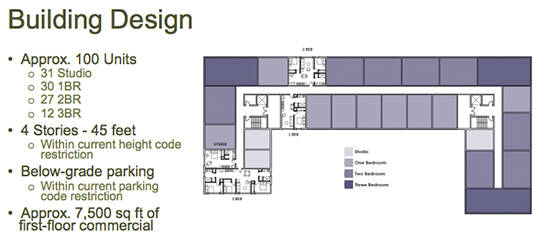On the one hand, the Bainbridge Island City Council wanted to move forward regarding the city’s plan to build affordable housing on the site of the former police station.
On the other hand, it wanted the public to be involved.
They were stuck between the proverbial rock and a hard place. “We lose both ways” we decide, mayor Joe Deets said. The council voted to move ahead but, “The public needs to know we are bringing them on board.”
City manager Blair King said at the Feb. 13 meeting the council will discuss what it wants in a developer. There could be public comments at the business meeting after that.
Deputy mayor Jon Quitslund and Councilmember Kirsten Hytopoulos voted against it—not because they don’t support affordable housing, but because they want public involvement.
“It pains me to vote no,” but I will continue to support the project following public input, Hytopoulos said. “It feels odd to vote today” without giving the public a chance to comment.
Quitslund added: “If it looks like I’m going backward (on affordable housing) you don’t know me.” He just would like greater diversity in such a project.
Councilmember Brenda Fantroy-Johnson took a shot at Quitslund’s stance, considering during his campaign he said he was all about affordable housing. “Remember who voted for affordable housing,” she said. “The horror story is coming. We need housing. We need to build it.”
She said the vote was really simple. “It’s a request for qualifications. That’s all it is.”
Councilmember Leslie Schneider also wants public input but felt the vote was just to get more information on possible developers.
Councilmember Clarence Moriwaki said the public already has had a lot of time to have input as this site has been discussed for decades. The city even put out a video on it in 2021. “It’s by far the most expedient and productive option.”
King said public input hasn’t been sought because the city didn’t know if an affordable housing project was even feasible. But city staff found out it could be if a Low Income Housing Tax Credit could be obtained to attract private sector development.
That possible project at 625 Winslow Way could include 31 studio, 30 one-bedroom, 27 two-bedroom and 12 three-bedroom homes in a 45-foot, four-story building, that is within the current height code restriction. There would also be 7,500 square feet of first-floor commercial space, along with below-grade parking.
A presentation says the site is ideal for such a project because it is: within walking distance to many employers, public transit and daily living needs. It also meets public funding priorities, is optimal for the tax credit, and the city’s investment ensures control over future redevelopment and influence on commercial uses.
“We can deliver if the council wants to build an affordable housing project,” King said, adding the next step is to seek either a nonprofit or for-profit developer to partner with.
Deets said he has been asked by constituents why the city doesn’t just sell the land to a developer instead of getting involved itself in such a project.
King said the return investment really isn’t enough to attract a developer to affordable housing. As a government entity, the city can get subsidized with the tax credit to make it work.
A city consultant said it’s a great site for a government development because it’s close to city services, so occupants would not have to depend on a vehicle. People who are just getting by financially can either walk or are close to public transportation. A market-rate development would be riskier as a higher profit margin is needed. The consultant also said the earlier the better to make a decision as there is a lot of competition for that tax credit funding.
“Urgency is one thing, but a premature commitment is not the same thing,” Quitslund said. He added that political will is important in making decisions, but he didn’t want to “undermine our success by not getting public support.”
King added: “No one should feel pressured to vote for this,” but now the city has a hypothetically feasible project. “You control the terms into the future.”
Hytopoulos and Schneider asked how much control the city will have in deciding who can live in the housing.
“We have a lot of control over that site right now,” Schneider said, asking if a requirement could be that at least one person would have to work on BI.
Hytopoulos said she doesn’t want the development filled with people from Seattle. “The goal is to create housing for our needs,” such as “workers right down the street at Winslow Way restaurants.”



